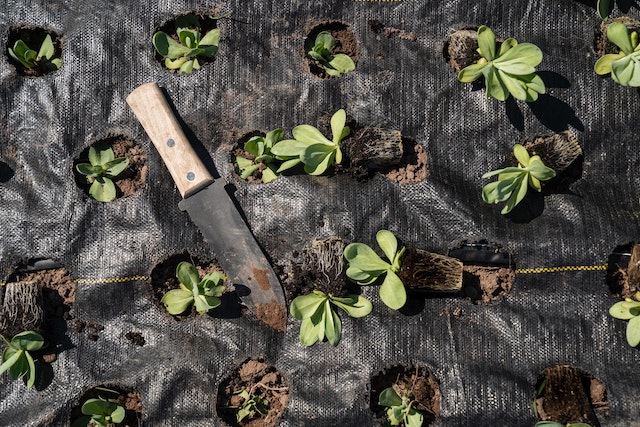Definition of Organic and Conventional Gardening
Organic gardening is a method of growing plants and vegetables without the use of synthetic chemicals, pesticides, and fertilizers. The goal of organic gardening is to create a sustainable and self-sufficient ecosystem in which plants can thrive without the need for artificial inputs.
Conventional gardening, on the other hand, relies heavily on the use of chemicals and synthetic fertilizers to promote plant growth and control pests. This method is often seen as more convenient and efficient, but it comes with a number of drawbacks, including negative impacts on the environment and human health.
Importance of Choosing the Right Method
Choosing the right gardening method is important for many reasons. Whether you are a professional farmer or a hobby gardener, your choice of method will have a direct impact on the health of your plants, the quality of your produce, and the overall sustainability of your garden.


Benefits of Organic Gardening
Healthier Produce
One of the main benefits of organic gardening is that it produces healthier and more nutritious produce. Organic fruits and vegetables are grown without the use of synthetic chemicals, which can leave residue on the produce and may have negative effects on human health.
Better for the Environment
Organic gardening is also better for the environment. It promotes biodiversity and supports natural ecosystems, which helps to preserve our planet for future generations. Organic gardening also reduces pollution and conserves water, making it a more sustainable method of growing plants.
Cost-Effective
Many people believe that organic gardening is more expensive than conventional gardening, but this is not always the case. Organic gardening can be more cost-effective in the long run, as it reduces the need for synthetic chemicals and fertilizers. Additionally, once established, an organic garden can be relatively low maintenance.
Drawbacks of Conventional Gardening
Use of Chemicals
Conventional gardening relies heavily on the use of synthetic chemicals, pesticides and fertilizers. These chemicals can be harmful to the environment and human health. They can also leave residue on produce that may be harmful to consume. Additionally, the overuse of chemicals can lead to soil and water pollution, and can harm beneficial insects and wildlife.
Impact on Soil Health
Another drawback of conventional gardening is that it can have a negative impact on soil health. The use of synthetic chemicals can disrupt the natural balance of the soil and lead to nutrient depletion. This can make it harder for plants to grow and can lead to a decline in overall garden productivity.
Negative Impact on Wildlife
Conventional gardening practices can also have negative impacts on local wildlife. Pesticides and other chemicals can harm beneficial insects and other animals, which can lead to a decline in biodiversity in the area. This can also disrupt the natural balance of local ecosystems and lead to a decline in overall garden productivity.


How to Start an Organic Garden
Choosing the Right Site
The first step in starting an organic garden is choosing the right site. Look for a spot that receives at least 6 hours of sunlight per day and has well-draining soil. Avoid low-lying areas that are prone to flooding, as well as areas with heavy clay soils that can be difficult to work with.
Preparing the Soil
Once you have chosen a site, the next step is to prepare the soil. This can be done by adding organic matter, such as compost or well-rotted manure, to the soil to improve its structure and fertility. You should also test the pH of the soil to ensure that it is within the proper range for the plants you want to grow.
Planting and Maintenance
After preparing the soil, it’s time to start planting. Choose plants that are well-suited to your climate and soil conditions. Once the plants are in the ground, it’s important to keep them well-watered and to provide regular maintenance, such as weeding and mulching.
Conclusion
Organic gardening is a sustainable and chemical-free method of growing plants and vegetables. It offers many benefits over conventional gardening, including healthier produce, better for the environment and cost-effective. While conventional gardening may be more convenient, it comes with many drawbacks, including the use of chemicals, impact on soil health and negative impact on wildlife. By choosing to garden organically, you can enjoy fresh, healthy produce while also helping to preserve our planet for future generations.

